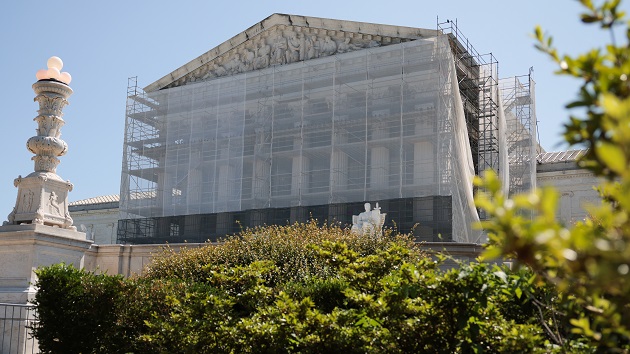
(WASHINGTON) — The Supreme Court on Thursday said individual Medicaid recipients do not have a right to sue over their state’s decision to cut off Planned Parenthood from the government-funded health insurance program for low-income residents.
The 6-3 decision, which broke along ideological lines, was a significant victory for conservative efforts to defund the private health clinic network, clearing the way for other states to follow suit.
“The Supreme Court rightly restored the ability of states like South Carolina to steward limited public resources to best serve their citizens,” said John Bursch, the attorney who defended South Carolina before the high court.
Planned Parenthood draws more than a third of its revenue from government grants, contracts and Medicaid reimbursements for non-abortion care, like cancer screenings and contraception treatments.
“Today’s decision is a grave injustice that strikes at the very bedrock of American freedom and promises to send South Carolina deeper into a health care crisis,” Planned Parenthood South Atlantic president Paige Johnson said in a statement.
The organization, which said it has served more than 50,000 state Medicaid beneficiaries so far this year, vowed to continue operations at its two South Carolina clinics.
At issue in the case was whether the Medicaid Act — which guarantees a “free choice of provider” that is willing and qualified — allows beneficiaries to sue their state if the government infringes on the ability see a preferred provider.
In 2018, South Carolina’s Republican Gov. Henry McMaster issued executive orders disqualifying Planned Parenthood from participation in the state’s Medicaid program, which is a jointly funded federal-state initiative.
Julie Edwards, a Medicaid beneficiary and type-1 diabetic who sought medical care at a Planned Parenthood clinic in Columbia, South Carolina, sued the state alleging a violation of the law.
Justice Neil Gorsuch, writing for the court’s majority, said that Congress never intended to allow individual recipients to sue states to enforce terms of the Medicaid Act and that it retains the sole responsibility through power of the purse.
“It generally belongs to the federal government to supervise compliance with its own spending programs,” Gorsuch wrote.
In dissent, Justice Ketanji Brown Jackson, joined by Justices Sonia Sotomayor and Elena Kagan, said that the decision thwarted the will of lawmakers and undermined a key civil rights law.
“Today’s decision is likely to result in tangible harm to real people,” she wrote. “At a minimum, it will deprive Medicaid recipients in South Carolina of their only meaningful way of enforcing a right that Congress has expressly granted to them. And, more concretely, it will strip those South Carolinians — and countless other Medicaid recipients around the country — of a deeply personal freedom: the ability to decide who treats us at our most vulnerable.”
South Carolina’s two Planned Parenthood clinics have served mostly low-income, minority women for more than 40 years.
“By denying Medicaid enrollees the ability to enforce their right to choose among qualified providers, the Court has effectively closed the courthouse doors to those seeking to protect their access to care,” said Jane Perkins, legal director at the National Health Law Program, a nonprofit advoacy group. “This decision disproportionately impacts low-income individuals who rely on Medicaid for essential health services.”
Anti-abortion groups, which have long targeted Planned Parenthood as the nation’s largest provider of abortion services, hailed the Supreme Court decision.
“Planned Parenthood’s taxpayer-funded gravy train is swiftly coming to an end,” said Marjorie Dannenfelser, president of SBA Pro-Life America.
Copyright © 2025, ABC Audio. All rights reserved.




